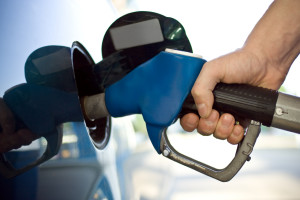CONTENT IDEA by Guy Cerrito
 Are we being mislead into wasting tons of money on the kind of gas most of our cars don’t actually need? When it comes to gasoline, we tend to associate higher octane numbers with higher quality and higher performance.
Are we being mislead into wasting tons of money on the kind of gas most of our cars don’t actually need? When it comes to gasoline, we tend to associate higher octane numbers with higher quality and higher performance.
Most people think that Premium fuel is supposed to be better for their vehicles. Gasoline companies know this and do nothing to deter drivers from wasting money. Labeling 87 octane gas ‘Regular,’ and 91 or higher octane ‘Super’ and ‘Premium’ reinforces this myth — while gas companies are profiting billions at our expense. After all, since Premium is priced higher than Regular gas, it’s in their best interest to let as many people as possible believe that paying ‘just a bit more’ means getting better quality gas.
We are led to believe that Premium fuel burns cleaner, and that it will give the vehicle extra power and better fuel mileage than Regular gasoline. This is simply not true. In fact, the octane rating for gasoline has nothing to do with the amount of power locked inside of it – it actually relates to just how much a fuel can be compressed before igniting. The higher the number, the less likely it is to ignite under pressure.
When gasoline is sprayed into a cylinder by a fuel injector and mixed with oxygen, it remains there in vapor form until it is time for the spark plug to light it up, causing the explosion that drives the piston down to generate horsepower. The timing of this explosion is critical, as gasoline that ignites too early causes ‘knock’, which reduces engine output and efficiency. In most engines, knock is rarely an issue because the compression ratio (the pressure that the air/fuel mixture is put under in the cylinder) is low enough that Regular gasoline’s octane rating is sufficient. There is absolutely no benefit to running high octane fuel in a standard motor, since it will never be able to take advantage of Premium gasoline’s higher knock resistance. However, more aggressive engine management schemes, especially those found in turbocharged or supercharged vehicles, can turn up the compression to a high level, requiring much higher octane gasoline to avoid knock.
So unless you have a car with an engine built and tuned specifically for Premium fuel, you really don’t need high octane gasoline. You will not see the power or fuel efficiency increase by running high octane fuel in an engine that has been tuned and designed for Regular gas, nor will doing so perform any extra ‘cleaning’ inside the motor. So next time you fill your tank, do not waste money on Premium if your vehicle does not require it!
SOURCE: www.nicoclub.com/archives/gasoline-octane-myths.html
